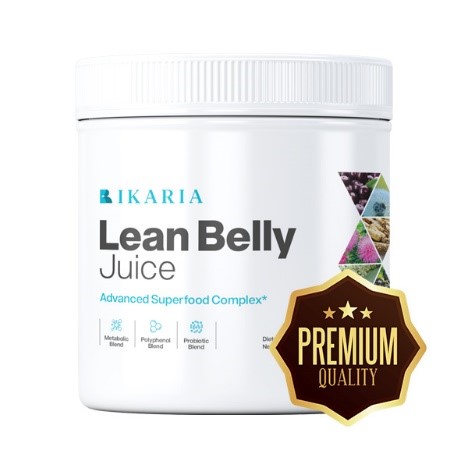Hip ache – we’ve all been there. Sometimes you get up a little stiff, you sit for too lengthy or you get a bit too intense throughout your morning exercise. It often goes away by itself or with a little assist from an ice pack or heat bathtub.
But for some folks, it’s extra than simply an ache or a ache to be rested away. Chronic hip ache can impression your capacity to finish every day duties or do the issues you as soon as liked. If that sounds acquainted, we perceive how irritating and isolating it may be. But you’re not alone. In truth, it’s estimated that round 10% of the inhabitants experiences persistent hip ache. And the excellent news is that you have choices.
There are many types of therapy that may assist these with important hip ache, from conservative to surgical. Typically, your physician will start with gentler, much less invasive types of care, like medication or remedy. But what in the event that they don’t assist? Is it time to think about a hip replacement?
Let’s take a take a look at six of the frequent signs you may need a hip replacement, together with signs, circumstances that may improve your chance of needing one, and extra.
1. You’re experiencing persistent, important hip ache
Typically, hip ache entails the hip joint itself, which is a ball-and-socket joint that connects your thigh bone and your hip bone. It’s cushioned by a band of cartilage that helps the bones transfer of their socket with out grinding in opposition to one another.
As we age, that cartilage will get much less dense as a result of every day use, age-related modifications, damage and persistent circumstances like arthritis. It’s regular to often expertise some stiffness, however frequent bouts of radiating or intense ache within the groin, higher thigh or outdoors of your hip are trigger for concern.
Pain signs that may point out a bigger problem embrace:
- Chronic ache that doesn’t enhance with ache medication
- Pain that interferes with sleep, psychological health or your every day actions
- Intense or frequent hip ache that persists when you’re at relaxation
If you’re experiencing this type of ache, it may very well be a signal that total hip joint put on and tear is worsening. And that’s not one thing you ought to wait out.
It’s essential to hearken to your body and contact base along with your physician about these signs. While there are many nonsurgical remedies your physician may counsel first, generally these signs may point out that you’re a candidate for hip replacement.
2. You’ve been identified with superior arthritis or important hip joint harm
There are many causes a hip can harm, and it’s not all the time straightforward to grasp why. The hip is a difficult construction comprising bones, ligaments, tendons and different tissues. While some causes for ache may be extra apparent, like a current damage, different points might be powerful to detect. And there are numerous frequent circumstances that may trigger the type of hip ache that may result in a hip replacement.
Hip arthritis
Arthritis is a frequent situation that entails the deterioration of cartilage at a joint. There are many sorts of arthritis, however there are two that generally include hip ache:
- (*6*), wherein cartilage begins to interrupt down
- Rheumatoid arthritis, wherein the immune system itself begins attacking the joint
Arthritis might be painful, have an effect on mobility and may worsen over time with out therapy. The reason for arthritis depends upon which kind you have, however it’s more than likely to happen as you age. Your physician can diagnose hip arthritis by taking a look at your signs or medical historical past, or by conducting imaging or blood assessments.
Osteonecrosis
Osteonecrosis is a situation the place you expertise a disruption of blood move in your bones. While typically regarded as stable sediment, bones are made up of residing materials and a system of blood vessels that need to remain healthy. When that operate is disrupted, bone tissue can break down and even collapse joints of their sockets.
Doctors can establish osteonecrosis by means of diagnostic testing, like an X-ray or MRI, and infrequently this situation requires surgical therapy.
3. Your vary of movement is proscribed or changing into extra restricted
As talked about, it’s regular for the hip joint to lose flexibility as you grow old. And whereas that’s not one thing to be too involved about – you can keep lively at any age – it’d nonetheless restrict your vary of movement.
However, these limitations shouldn’t impression your capacity to do on a regular basis duties. Certain mobility-based signs point out that hip points may be extra difficult than simply typical ageing, comparable to:
- Pain or stiffness that worsens when you’re lively
- Hip ache that doesn’t reduce with a mobility support like a cane or walker
- Pain that limits your capacity to climb stairs, crouch or rise from a seated place
Another factor to think about is that this ache typically begins a cycle of inactivity. If you’re hurting, it’s tougher to get round, and you may have much less motivation to take action. Decreased mobility will in flip weaken your muscle tissue, tendons and bone strength.
4. Your hip is stiff
Stiffness may not all the time point out a bigger drawback. Some days you’re extra lively than others, like if you push it too exhausting exercising or go to a group occasion with a lot of strolling. Mild overuse or damage is one thing you can deal with at residence.
However, if stiffness is frequent and extreme, it may be time to examine in along with your physician to see if there’s a bigger problem at play. Sometimes causes for stiffness are extra apparent, however in some circumstances, it could possibly point out an underlying problem, like a extra severe damage, gout, arthritis or one other situation you need addressed. See your physician instantly if, alongside stiffness, you expertise fever or elevated redness and heat, or if you are unable to maneuver.
5. You discover modifications in your hip’s look or hear new sounds
It’s all the time a bit jarring when the body does one thing sudden, particularly when it begins making a new sound or it appears a little totally different. These might be warning signs, particularly the place the hip is worried. It’s essential to hear.
Sometimes when the muscle tissue or tendons supporting the hip joint are compromised, you may hear a sound (like a snap or click on) when you transfer. This may not be accompanied by ache or stiffness, however typically is, and it could possibly point out a bigger drawback, comparable to intense put on and tear or cartilage harm.
6. Other hip ache therapy choices haven’t labored or misplaced their effectiveness
Before your physician recommends a hip replacement, they’ll usually prescribe extra conservative types of therapy first. Surgery is never the primary possibility when there are much less invasive remedies accessible.
Depending in your signs and what may be inflicting them, frequent remedies can embrace:
- Rest
- Ice and warmth remedy
- Medications
- Assistance units, comparable to walkers and canes
- Exercise or bodily remedy
If these therapy choices don’t present reduction, or they as soon as did however are now not efficient, it may be time to debate hip replacement along with your physician.
What to do if you suppose you need a hip replacement
If you’re experiencing any of those signs or warning signs, it’s time to schedule an appointment along with your orthopedic physician to speak about a doable hip replacement surgical procedure.
During this appointment, you’ll have the chance to speak about signs along with your physician and talk about therapy choices. If they decide a hip replacement is the very best therapy possibility for you, you’ll be capable of discuss subsequent steps and what you can count on earlier than, throughout and after hip surgical procedure. Make certain you’re scheduling time with a physician you belief. At TRIA, our orthopedic medical doctors will assist you construct the very best therapy plan for you.



















Discussion about this post